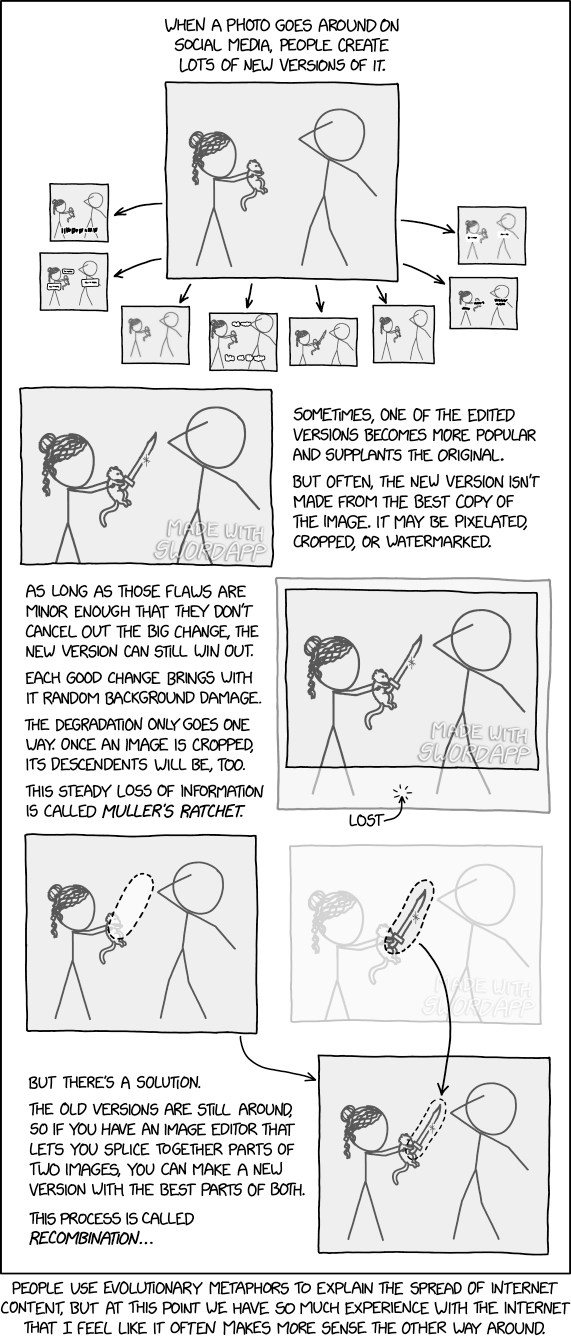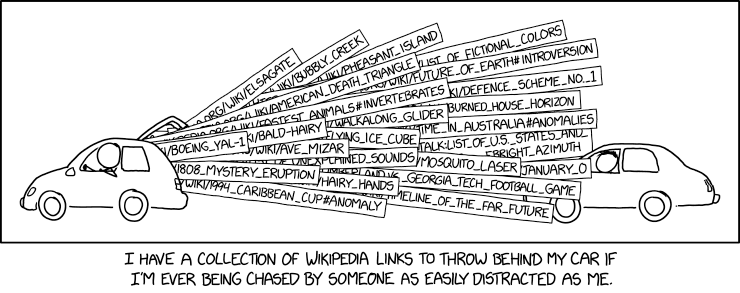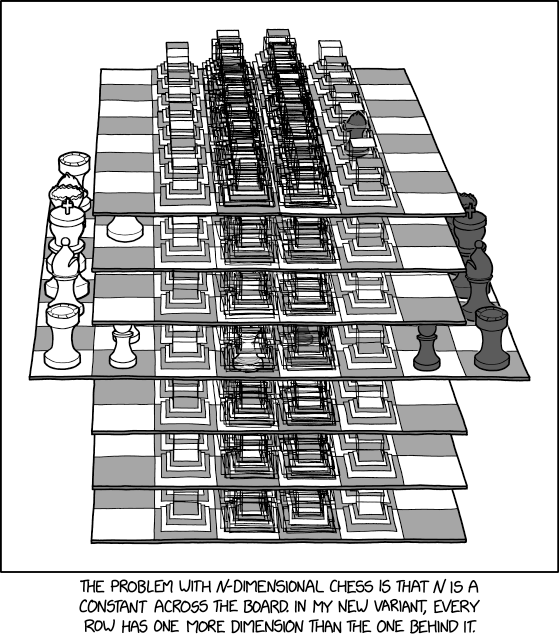
Muller's Ratchet(ミューラーのラチェット)
When a photo goes around on social media, people create lots of new versions of it.
(ソーシャルメディアで写真が話題になると、人々はその写真の新しいバージョンをたくさん作る。)
Sometimes, one of the edited versions becomes more popular and supplants the original. But often, the new version isn't made from the best copy of the image. It may be pixelated, cropped, or watermarked.
(時には、編集されたバージョンの一つが人気を博し、オリジナルに取って代わることもある。しかし、多くの場合、新しいバージョンは画像の最良のコピーから作られたものではない。ピクセル化されていたり、トリミングされていたり、透かしが入っていたりする。)
As long as those flaws are minor enough that they don't cancel out the big change, the new version can still win out. Each good change brings with it random background damage. The degradation only goes one way. Once an image is cropped, its descendents will be, too. This steady loss of information is called Muller's Ratchet.
(それらの欠陥が、大きな変化を打ち消してしまわない程度の小さなものである限り、新バージョンが勝利を収めることができる。良い変化は、ランダムな背景のダメージを伴います。そのダメージは一方通行ではない。一度トリミングされた画像は、その子孫も同じようにトリミングされる。このように情報がどんどん失われていくことを「ミュラーズ・ラチェット」と呼ぶ。)
But there's a solution. The old versions are still around, so if you have an image editor that lets you splice together parts of two images, you can make a new version with the best parts of both. This process is called recombination...
(だが、解決策はある。古いバージョンはまだ残っているので、2つの画像の一部をつなぎ合わせることができる画像編集ソフトがあれば、両方の良いところを取り入れた新しいバージョンを作ることができる。これを「組み換え」という。)
People use evolutionary metaphors to explain the spread of internet content, but at this point we have so much more experience with the internet that I feel like it often makes more sense the other way around.
(インターネット上のコンテンツの広がりを説明するのに、進化のメタファーを使う人がいるが、現時点ではインターネットの経験が豊富なので、逆の方が理にかなっていると感じることが多い。)
Alt-text: Who knew you could learn so much about sexual reproduction from looking at pictures on the internet!
(インターネット上の写真を眺めることで、有性生殖についてこれほど多くのことを学べるとは思わなかった!)
Muller's Ratchet




